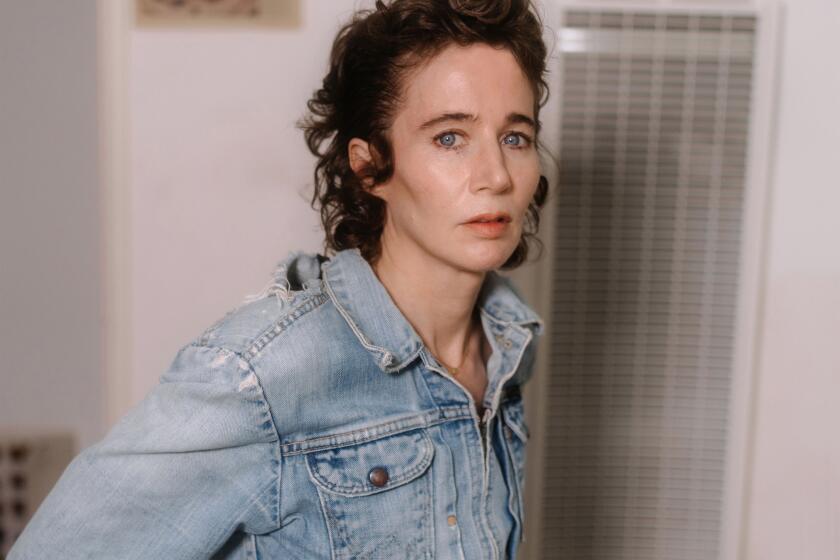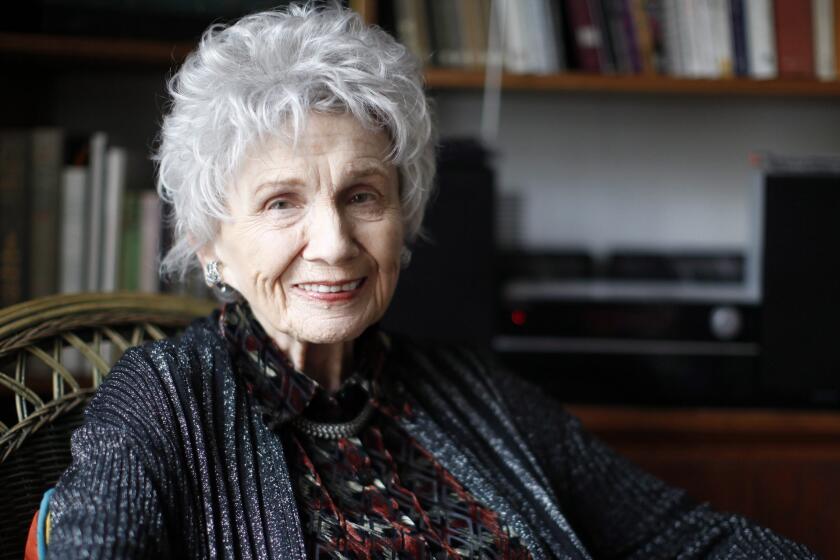First Fiction
Ruby River, Lynn Pruett, Atlantic Monthly Press: 280 pp., $24
Lynn Pruett is one of those good-natured Southern writers who draw you in with their gentle drawl. Soon enough, all those tart asides about small-town busybodies, lighthearted intimations of bad behavior and hunger-inducing references to homemade pie are growing on you like kudzu. Try to resist, and you quickly discover that it’s downright impolite to walk away when Pruett has so much to tell.
After all, “Ruby River” is classic town gossip, the kind typically served up with strong coffee or sweet iced tea. Appropriately enough, it centers around Bohannan’s truck stop, a bustling hive of polyunsaturated fat and controversy located in Maridoches, Ala., on the banks of the Ruby River.
Hattie Bohannan is the can-do widow of Oakley Bohannan, a former military hero, now “Missing in Traction”: While Hattie waits for Oakley’s ashes to return from the Veterans Administration, she plunges into the restaurant biz, opening Bohannan’s and becoming a stickler for ripe tomatoes. The headstrong Hattie, with “her smooth clear skin that hinted of expensive treatments, old Atlanta, and inner peace,” is an obvious target for the sniping Ladies of the Church of the Holy Resurrection.
After her daughter Jessamine is discovered carrying on with a married man and a prostitute named Ash Lee is found working Bohannan’s parking lot, the old bags at the church -- led by the lustful, misogynistic Rev. Martin Peterson -- vow to stamp out this thriving center of wanton harlotry. Not surprisingly, hilarity and hypocrisy ensue.
But what is surprising is the grace with which Pruett orchestrates what, in lesser hands, could be a thudding farce. Hattie is a compelling widow: a capable yet vulnerable Southern lady inching her way into a relationship with the sheriff, trying to keep a lid on three daughters (and a fourth who is actually Jessamine’s) and occasionally showering Rev. Peterson with rocks.
In the end, Hattie Bohannan may well lose her beloved truck stop to rampaging fundamentalists intent on opening an evangelical steakhouse, but, with her common sense and top-notch chili, she’s already won us over.
*
Your Mouth Is Lovely, Nancy Richler, Ecco Press: 358 pp., $25.95
“As a people we’ve tended to dwell on the past and ignore the future. For centuries we’ve done that, and where has it gotten us?” So asks Bayla, a budding revolutionary in Nancy Richler’s ambitious novel about a political prisoner held in Siberia following the uprisings that swept Russia in 1905.
Miriam is the name of Richler’s sympathetic teenage heroine, and she grows up in a Jewish ghetto amid superstition, crushing orthodoxy and the vise grip of industrial capitalism. She’s raised by her feckless father and a formidable stepmother, Bayla’s big sister Tsila, a haughty seamstress given to tough love: “You’re a big girl, almost a woman,” she informs Miriam. “It’s time you lift yourself from the grave of your own morbidity.”
But the way Miriam lifts herself isn’t what her hard-nut stepmom has in mind. While Tsila scorns her neighbors as unenlightened fools, she isn’t ready for the response to unfair working conditions, pogroms and cholera outbreaks cooked up by the likes of Bayla and the upstart, anti-tsarist Bundists whom Miriam falls in with.
Bayla, it turns out, is an expert bomb maker, and with every page, “Your Mouth Is Lovely” transforms from being a magical shtetl portrait into something more incendiary. The enigmatic title comes from a traditional blessing upon infants; “Your Mouth Is Lovely” is suffused with the lyricism of the ancient texts and their seductive mythologies.
But, poised between past and future, Miriam gravitates toward newer, more compelling mythologies whose scriptures are written in pamphlets and expressed by exploding shrapnel. It’s a fascinating historical turning point: The monarchy is crumbling, the proletariat is finally getting a leg up, and the Jews of Kiev are departing for New York, Montreal and Buenos Aires. And it’s beautifully told by Richler, through the eyes of one girl who ends up in Siberia for her tiny role in changing the world.
More to Read
Sign up for our Book Club newsletter
Get the latest news, events and more from the Los Angeles Times Book Club, and help us get L.A. reading and talking.
You may occasionally receive promotional content from the Los Angeles Times.






